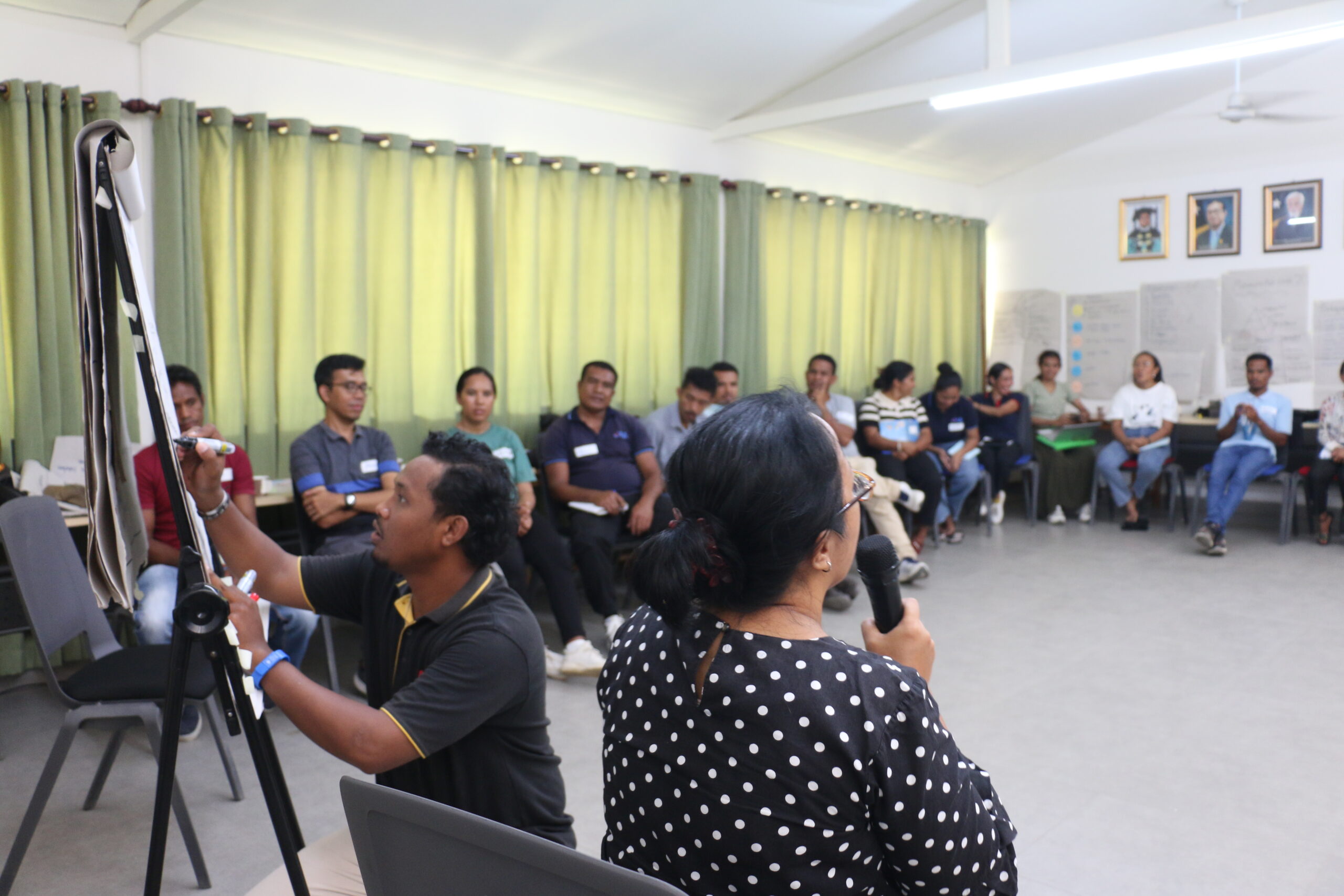From 13 – 19 of November, the staff of Jesuit Social Service (JSS) participated in their first “Training of Trainers” (TOT) program on Community Health Education (CHE). The event marked an exciting milestone for the team, as they take on new skills and strategies to enrich service to local communities. It is evident that God has blessed the JSS team for the mission they in charge for, empowering us to support rural areas and improve the lives of many.
The TOT program, organized by Medical Ambassadors International (MAI), is designed to equip individuals and organizations who work directly with communities, especially in rural areas of Southeast Asia, including Timor-Leste. The focus of the training is to provide tools for holistic community-based development, with an emphasis on implementing programs that are rooted in the local context and resources.
The Community Health Education (CHE) training covers essential aspects of community development, particularly how to integrate local assets to support health and wellbeing using holistic approach. Over the course of one week, participants engaged in hands-on learning, focusing on strategies to implement JSS’ programs effectively in rural communities.
José, one of the participants, shared his thoughts on the training’s impact, saying, “This training has given me new strategies to improve how we communicate and work with local communities, especially in implementing the JSS-WASH program. The concepts like ‘Tree Problem becomes Tree Solution,’ ‘Asset-Based Community Development,’ and ‘Flower Plan’ really shaped my understanding of how we can engage with local traditions and perspectives.”
These lessons are part of a larger framework that aims to build sustainable community development through collaboration, resourcefulness, and respect for local practices.
The TOT program was led by Nugie Nugroho, Regional Coordinator for Southeast Asia at MAI, alongside Nina and Herlin, both experienced CHE practitioners from Indonesia. Their approach was participatory, encouraging all participants to share their comprehension and present what they had learned during each session.
Mr. Nugie expressed his gratitude to JSS, saying, “It’s been a privilege to share knowledge with such an engaged group. I’ve seen full participation from everyone, and I especially appreciate that JSS invited staff from all units — not just senior staff, but driver too. It’s wonderful to see JSS fostering inclusive opportunities for growth across the entire team.”
The participants, from various departments including WASH, CSDO-Kasait, Food Security, Railaco Mobile Clinic, Horticulture in Dare and Hera. The staff were highly engaged throughout the week. By the end of the training, many expressed their excitement about applying the new skills and knowledge to their work in the field.
As JSS continues to strengthen its capacity to serve the people of Timor-Leste and beyond, we are hopeful that this training will be a key turning point in making JSS a pioneer in rural development. The JSS-WASH program, along with other health and community services, aims to provide basic needs like clean water, access to healthcare, and disease prevention to rural populations.
We are excited for the JSS’ team to take what they have learned and apply it to their work, building deeper connections with local communities. The hope is that, JSS will continue to improve the lives of those in need and bring God’s love and presence even to those who live in the remotest areas.
“I hope the JSS team will practice the knowledge they have gained about CHE, adjusting it to their unique contexts. With your continued effort, I am confident that you will bring a positive change to communities you serve.” Affirmed Nugie.
To support the work and mission of Jesuit Social Services, please contact etr.communications@mail.com. Your contribution can make a meaningful difference in the lives of many, including improving community access to clean water and supporting health facilities in rural areas.
By: Iriana Soares
(Source: Jesuit Social Service, José Pereira and Mr. Nugie Nugroho)

